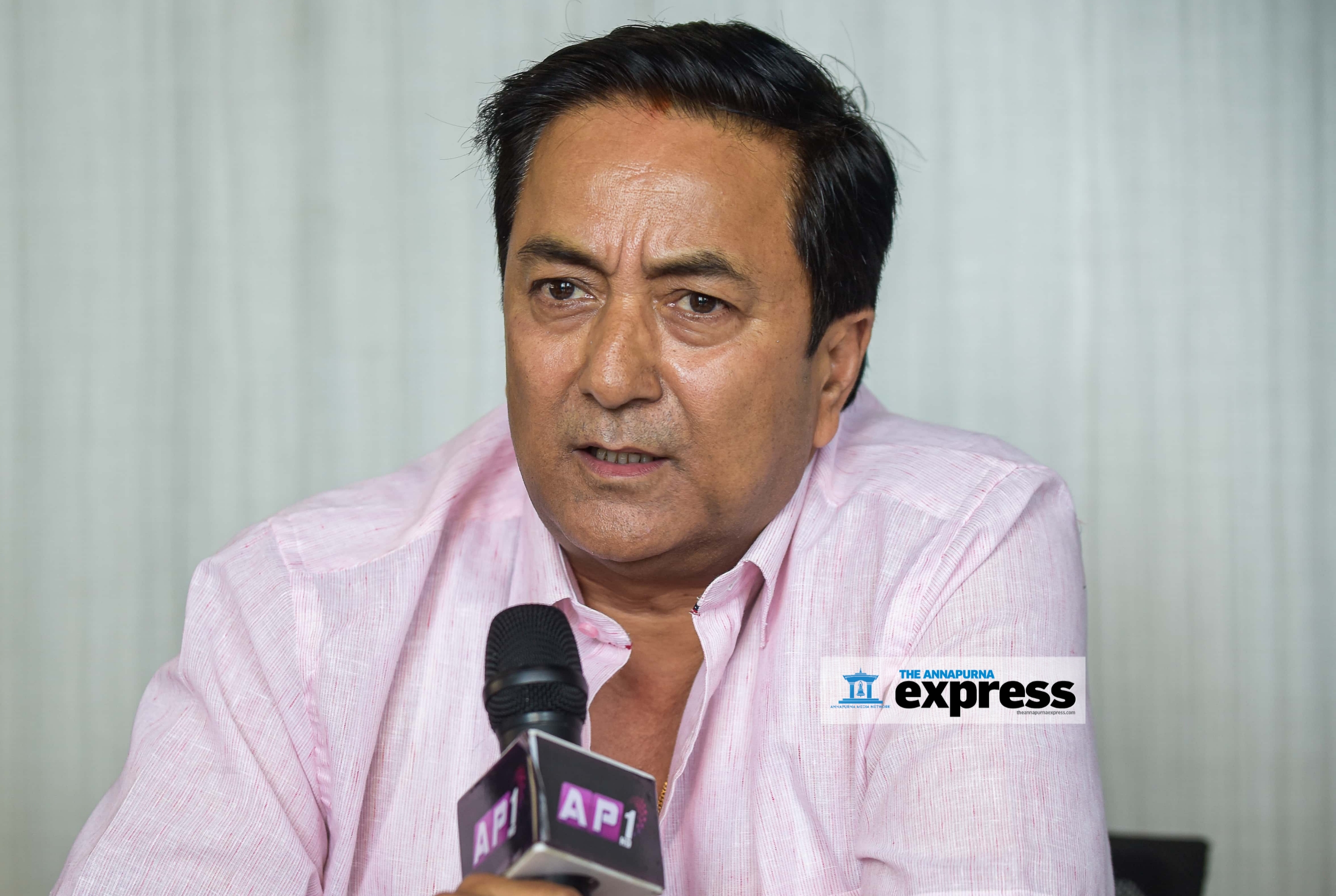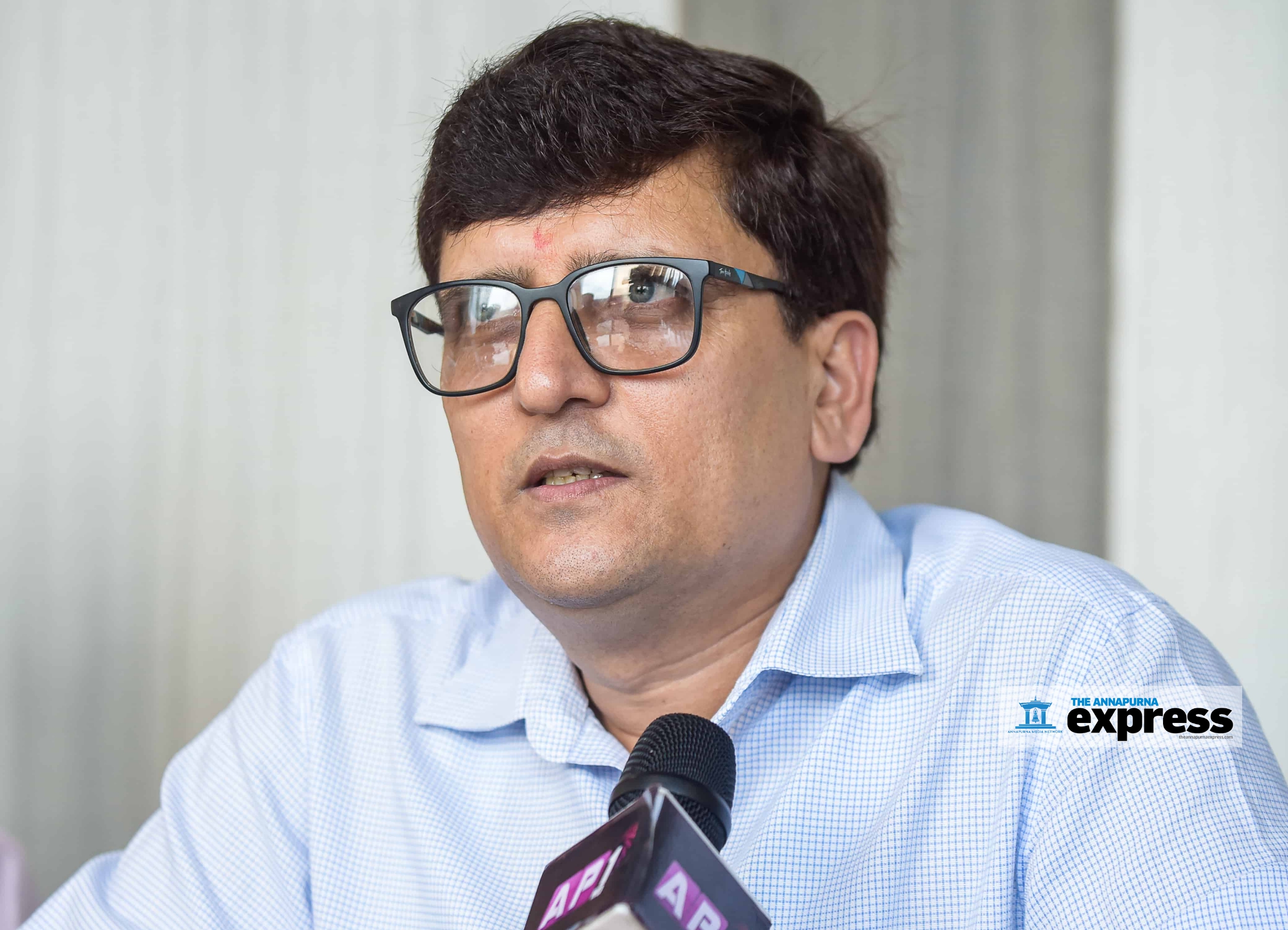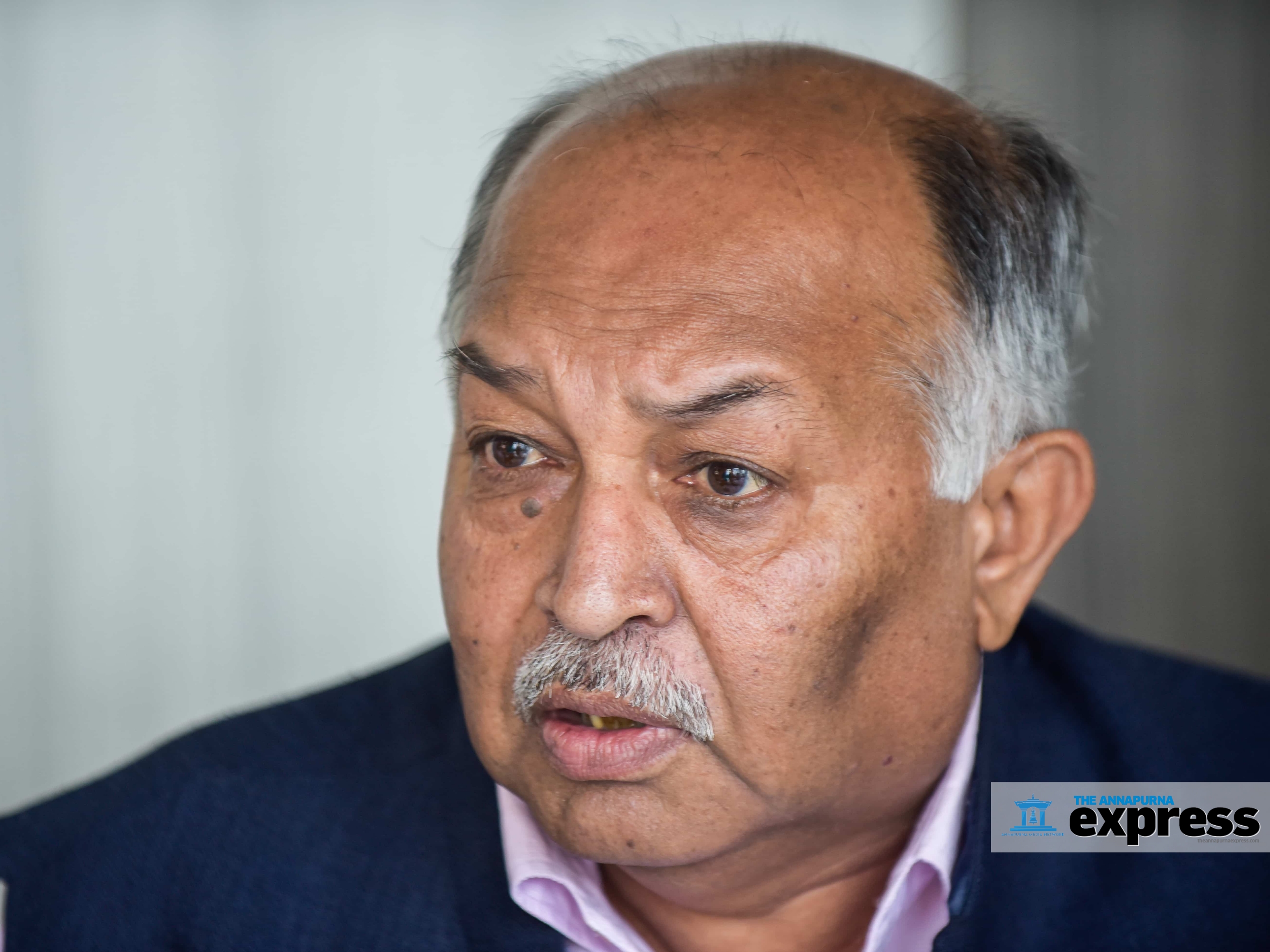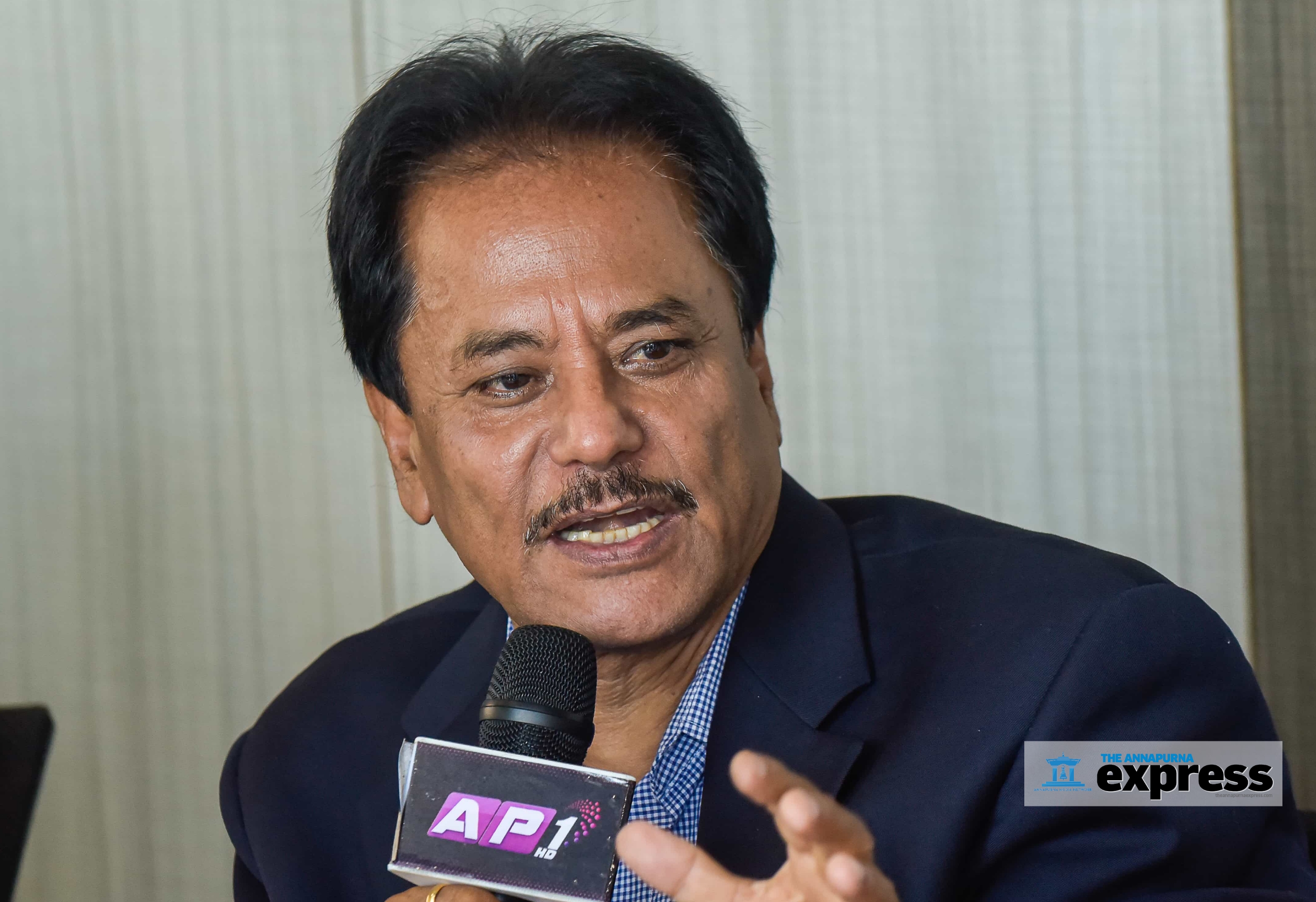Nepal-US relations have hit a bumpy patch of late. First, the parliamentary ratification of a $500m US grant under Millennium Challenge Corporation (MCC) compact ran into a nasty controversy after it was linked to ‘anti-China’ Indo-Pacific Strategy (IPS). The parliament endorsed the compact with an interpretative declaration, which clearly stated that Nepal can never be a part of any military strategy. But within a few months of MCC’s passage, there is now debate over the US State Partnership Program (SPP). Nepal has refused to join the program saying the SPP was mentioned in the 2019 IPS report. ApEx this week organized a roundtable with former ambassadors and security and foreign policy experts to solicit their views on the recent evolution of the US-Nepal ties—with a focus on the IPS and Nepal’s place in it. Excerpts.
Strategic blunder on army chief’s part to write to the US
Binoj Basnyat, Strategic affairs analyst

Our government is weak in international relations. The contents of the much-talked Indo-Pacific Strategy (IPS) are country-specific, so Nepal should be clear that it is not an American ‘ally’ but just a ‘partner’ under it. There is a fundamental difference between the two. In our context, there is also a very narrow understanding of the word ‘strategy’ in the Indo-Pacific Strategy. It is an American way of dealing with the countries in the entire Indo-Pacific region, and they usually conduct cooperation and collaboration through such bilateral mechanisms. So the IPS should not be seen as a threat. It does not undercut our long-standing policy of non-alignment.
As for the State Partnership Program (SPP), it is a way for the Americans to deal and cooperate with the Nepal Army. But it was indeed a strategic blunder on the part of the Army chief to write a letter to the Americans in 2015 requesting to be a part of the SPP. The government of the day should have done this. Also, the Parliamentary Committee on International Relations should have summoned the army chief of the time for inquiry, not the current chief.
The Americans have many things to offer through various strategies and policies. The question is how we can best use them. To deal with these complex issues, there should be cooperation and coordination among major political parties and key state bodies.
We must prepare a broad framework of our national interests. On issues of international relations, there is a deep gap among political leaders, government officials and experts. We also lack strategic vision and planning.
It is vital that Nepal clearly defines its non-alignment policy. It is also important to keep party politics out of sensitive foreign policy issues, and to strengthen our security agencies.
Relations with big powers should not be project-driven
Geja Sharma Wagle, Foreign policy expert

Any foreign policy issue is increasingly seen through the narrow prism of nationalism in Nepal. To avoid the recurring confusions and controversies, we must develop separate national security and foreign policy documents based on broad consensus. Those documents of consensus should dictate our security and foreign policies, irrespective of which political party is in power.
Currently, our dealings with big powers are driven by some specific projects, be it America’s Millennium Challenge Corporation (MCC) or China’s Belt and Road Initiative (BRI). But Nepal’s relations with the US, China or India should not be confined to such specific projects. But this project-driven approach still prevails, overshadowing our long-standing and multi-dimensional ties with these countries.
We talk of balanced foreign relations, but the time has come to define what kind of balance we seek: a static or a dynamic balance? We must also define our non-alignment and neutrality policy in the changing context. We should maintain dynamic and strategic balance while dealing with big powers, as king Mahendra first proposed in 1960.
Look at Bangladesh and Mongolia, which have successfully maintained a dynamic balance in relations with all major powers for their development. Nepal is focusing more on developing cooperation, but what the big powers want is defense collaboration.
When Chinese President Xi Jinping visited Nepal in 2019, there was an agreement to elevate ties to ‘strategic partnership’. But there has been no discussion in Nepal whatsoever of what such a partnership entails. We are hastily signing documents as and when they come along, without going into the details, without understanding their nuances.
Nepal’s US policy influenced by outside actors
Vijay Kant Karna, Professor emeritus of political science

The government is taking decisions on issues related to the US without much thought or preparation. There has been no focused discussions in Nepal on the Indo-Pacific Strategy, either among political parties or in the parliament. There should have been a broad public discourse. It is not just about America, global powers often come up with new policies and without any deliberation, we in Nepal either accept or reject it. The Ministry of Foreign Affairs is responsible for deeply studying such policies.
The reality is that we do not have any institutional capacity to handle such issues. Not just with the US, Nepal also has defense cooperation with other countries, including with India and China. Defense collaboration is vital to enhancing our own capacity.
I doubt if we are making independent decisions on such matters. Perhaps our conduct of foreign policy, including with the US, is being influenced by external actors.
I do not think our politicians have thoroughly studied the SPP or IPS documents. It is important that they look at these strategies and policies with national interest at the center. But political parties are using foreign and security policies as a tool to fulfill their own interests.
Foreign powers are guiding our internal political order. For instance, a senior leader of the Chinese Communist Party was in town to facilitate unity among our communist parties. Where else in the world does this kind of open meddling happen?
US-Nepal ties always underpinned by military cooperation
Suresh Chalise, former ambassador to the US

To understand the current trajectory of Nepal-US relations, we have to understand their 75-year-long bilateral history. America recognized Nepal much before the British left India. There had been some vital developments between 1945 and 1950, which must be closely studied. Our relationship with America was underpinned by military cooperation from the very beginning. The core of the current problem is that a large section of Nepali population leans towards communist parties.
They see India as an expansionist and America as an imperialist power. This thinking naturally invites problems. Nepali and the American armies have for long been conducting military exercises. America has also been providing military support to Nepal. There is a strong social and economic bond between the two countries. Whether it is the SPP or any other American project, some people will always see them with a biased eye.
The cooperation under the SPP is mainly in the areas of disaster management and environmental protection, which are in our national interest. Our security apparatus alone cannot handle those issues. The SPP could have been an opportunity for us had we negotiated with the Americans better.
Obviously, there is growing competition among the major powers, but we should see this as an opportunity. Until and unless the state mechanisms are strong, there will always be policy inconsistencies. In the conduct of our foreign policy, we should practice strategic autonomy by taking our closest neighbors India and China into confidence.
It is also important that our politicians mend their ways. For instance, a few months back, when Chinese Foreign Minister Wang Yi was in Nepal, Prime Minister Sher Bahadur Deuba categorically told him that Nepal would not take loans for BRI projects. The prime minister should have avoided such polarizing statements. The same message could have been conveyed at the bureaucratic level.
Non-state actors setting the terms of debate
Apekshya Shah, Assistant professor, Department of International Relations and Diplomacy, Tribhuvan University

The Indo-Pacific Strategy has come under fire due to the negative narratives around it and its military component. Controversies surrounding the MCC and the SPP also demonstrate how non-state actors such as media and social media are complicating the space of foreign policy and diplomacy, traditionally dominated by state actors. Misinformation and disinformation have become a cause for concern, which the government must address.
Lack of a national consensus on foreign policy is the second point to consider. This is critical for any country, we have witnessed the consequences of lack of consensus and politicization of foreign policy. While a policy document is vital, diplomacy is even more important for its implementation.
In order to balance the interests of all parties involved, we will need even more diplomatic agility. Even in the recent SPP debacle, there was a clear diplomatic mismanagement.
It is important for Nepal to distinguish between military diplomacy and defense diplomacy. Military diplomacy is peace-time use of armed forces to achieve national and international goals. A country’s defense policy includes more than just the military, from the defense ministry, National Security Council, to Parliament. Military diplomacy has thus become a component of larger defense diplomacy initiatives. Previously, the military was under the supervision of the king who solely handled military diplomacy, but the context has changed since 2007. In these circumstances, it is vital for all parties involved to clarify how military-related diplomatic activities should be carried out and what role the Nepal Army plays.
The SPP was a diplomatic opportunity for Nepal to negotiate and achieve its defense interests, but neither the government nor the people were able to discuss and understand it.











